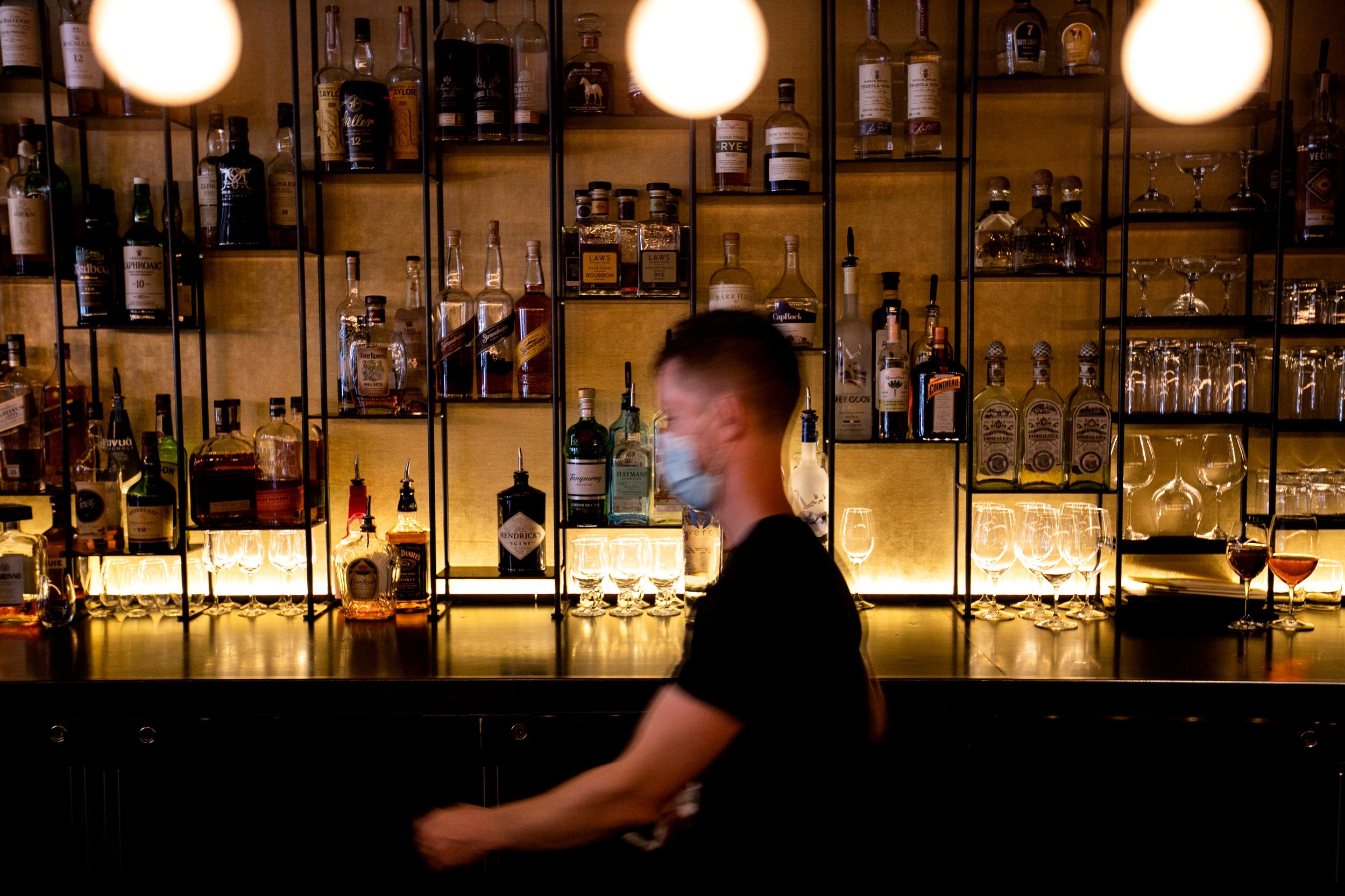
With coronavirus case numbers and hospitalizations back on the upswing, Gov. Jared Polis said the state will limit bars and restaurants from serving alcohol after 10 p.m.
“People can stay out as long as they like, but if you do want to get inebriated, please do it at home with just a few other people,” Polis said. “And don't let your judgment lapse.”
Last month, he ordered bars that only serve alcohol to close in-person service, to prevent the spread of the disease. Polis said he’s not a big fan of current state law, which requires bars to cease serving alcohol at 2 a.m. “I think that’s a bad law,” he said. Instead he’s calling on the legislature to give “local flexibility” to towns to set their own times for last call.
The governor displayed a chart showing the rates per 100,000 of confirmed COVID-19 cases by age group, and said it showed young people aged 20 to 29 are “leading the spread of infection in our state.”
He said the chart informed the move to close bars earlier. He said in other states that age group has been responsible for the spread of the disease. “We don't live in a world with generational isolation,” Polis said. That age group can pass along the virus into the “broader society, their parents, their grandparents, because 20 to 29 year olds don't live in a bubble.”
For months, Polis has talked about striking a balance between common sense measures aimed at protecting public health and allowing businesses to keep operating to protect the economy. At Tuesday’s press briefing, the governor appealed to young people to consider their own health, the broader economy and the community.
“It's the summer of no parties,” Polis reiterated, urging young people to choose events with perhaps four “besties” rather than big crowds. “Don't worry. You're 22. Now you'll still be young. Next year, you'll be 23. You'll be able to have fun, but now is not the time.”
Polis noted many young people work in the service industry, in restaurants, retails, frontline jobs and those jobs would be affected if the state’s virus numbers stumbled back.
Polis singled out another data point for concern: hospitalizations. He said the numbers had nearly doubled in the last two weeks. He said that was “not at all” a threat to the state’s healthcare system now, but “what we can't afford is another doubling and another doubling.”
Polis said the new policy, which he called temporary, would be in effect for the next 30 days.
The governor, and the executive director of the state health department, Jill Hunsaker Ryan, also said they had warned 15 counties that the counties would have to backtrack on reopening measures if they can’t rein in the spread of COVID-19. The group that could lose their variances, which allow for looser restrictions, include Denver, El Paso, Jefferson, Douglas, Arapahoe, Adams, Eagle, Pitkin and Garfield counties.
The health department alerted the counties last week; eight chose to forego a variance and instead stick with following the state’s “Safer at Home” phase. New variances have been put on pause.
Ryan said this is a “critical window of time,” given that both the state’s economy and the ability for children to return to school this fall are dependent on communities getting a handle on the virus. “Every day of a stay home order is very expensive economically,” she said. “If we can control the spread of disease on a county level, it reduces the need for statewide disruption.”









